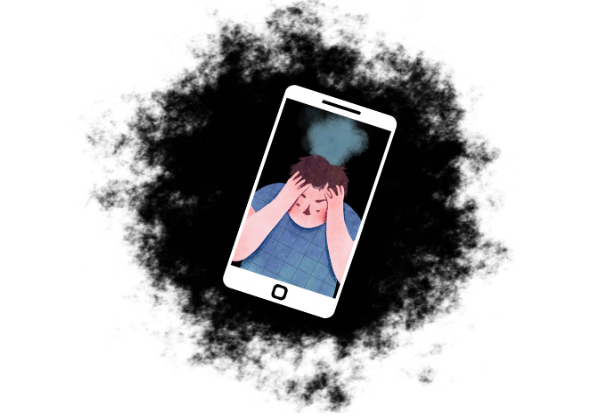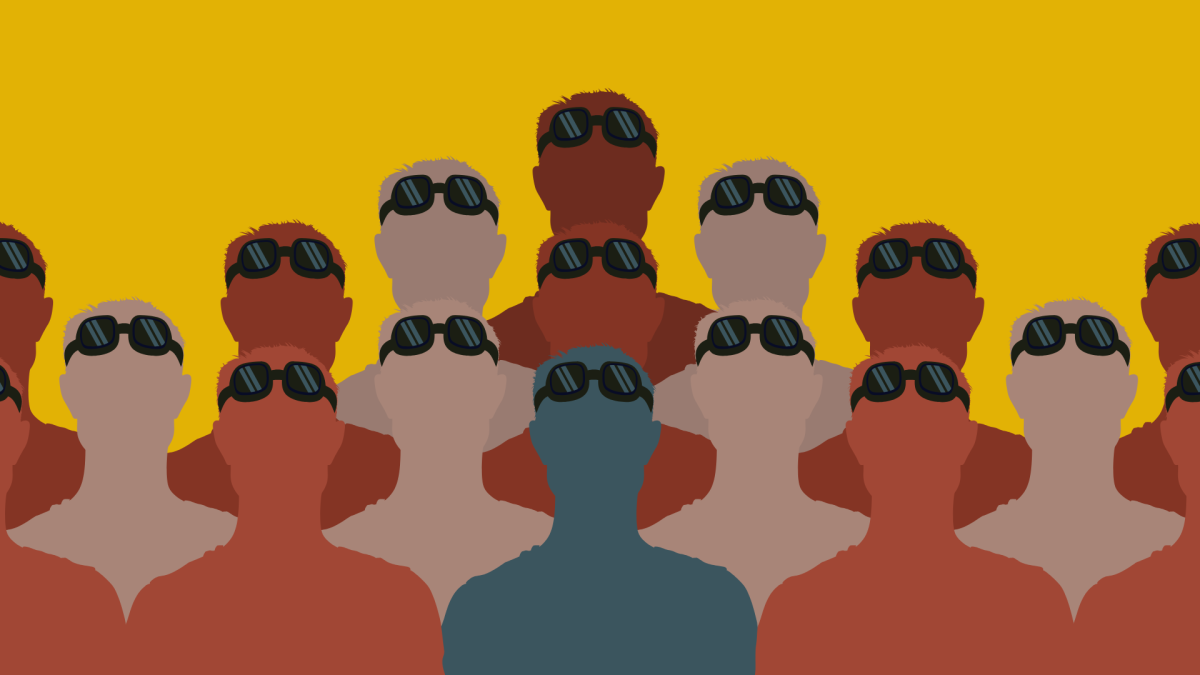OPINION: The bottomless pit of social media
March 21, 2022
It has been said a million times: not everything you see on social media is real. People are only going to feature the best aspects of their life. Still, that doesn’t change how it can make you feel. In the same way, reality shows aren’t real, but the drama is just as entertaining.
Social media can make you laugh and feel like you are a part of something. It can also leave you questioning your self-worth and make you wonder if you are productive or fit enough. You are surrounded by engagements, accomplishments, marketing, bad memes and possibly-real, possibly-fake news. Social media is a bottomless pit.
So why does the bottomless pit matter? A lot of Gen Z grew up with social media. My start on social media was in my early teens. I remember attempting to make impressive, viral Vines. I remember the day a friend told me I “needed” to download Snapchat in 2014. I remember the pang of rejection I felt when I saw posts of my high school friends hanging out without me.
Social media and I had a parasitic relationship. It would remove my boredom, and in return, I gave it my self-esteem and precious time. Social media is ironically isolating. What is supposed to make you feel connected to others is a completely solitary activity. It is essentially sitting and watching the world around you through a screen—millions of egos crying out into the void.
A 2018 University of Pennsylvania study of 143 undergraduates found that limiting the amount of time spent on social media, in this case, Instagram, Snapchat and Facebook, decreased levels of loneliness and depression. The study was realistic in that it did not have the participants delete or completely discontinue the use of social media. Instead, they cut back to 10 minutes per platform a day.
Even decreasing the amount of time spent on social media showed psychological improvements and a decrease in the fear of missing out phenomenon. This makes sense because it shirks that window of time for potential overthinking and comparison to others. Creating boundaries between you and social media may make all of the difference in reducing the negativity it can cause.
Another side effect of social media is the glorification of consumerism. From diarrhea diet teas to sweat-shop fast fashion, there is always someone peddling products on social media. This form of advertisement may be overt, but it could also be a subtle influencer partnership.
It can be very tempting to buy things online. It is harder to visualize the money leaving your hands when you click buy. In addition, many promotions on TikTok and other platforms are based on trends, meaning the items quickly go out of style and end up wasted.
Take “TikTok made me buy it” videos, for example. While it’s nice to hear product recommendations, it can lead to buying unneeded items because of the hype. Small businesses sometimes get featured, but unfortunately, giants like Amazon are more commonly touted.
Indeed, the climate on social media is materialistic and shallow. Our culture glorifies “the grind,” over working to make money, which in turn increases consumeristic buying power. People don’t hesitate to show off their possessions on social media in hopes to receive validation in the form of likes, comments and responses.
Social media may have its perks, but there are better things to devote time to. It is easy to scroll through feeds but difficult to focus on a hobby. I find myself scrolling through Instagram only to realize how much time I wasted with no clear reward.
Even watching a TV show seems like a better use of time, because at least there is a coherent story to follow rather than a disjointed cacophony of senseless noise.
Despite its issues, social media is used for positive change, like social activism. It allows information to be rapidly disseminated so a cause can gain traction. This can draw attention to societal injustice and hopefully improve them. People can more easily support other communities, such as when donations poured in from across the country following the Bowling Green tornado.
With all of these factors, it can help to evaluate the role of social media in our lives. Reflecting on how different types of posts, platforms or interactions make you feel can reveal whether or not it is a positive component of your life. Consider if it is a fulfilling use of time, or if the reward center of the brain is merely convincing you that it is.
Social media is unequivocally bad, and this is by no means a hot take. I think we all know it deep down, but it seems too fundamental, essential even, to remove it. Abandoning social media, however, was one of the best decisions I have made.
Commentary Writer Christina West can be reached at christina.west588@topper.wku.edu.















